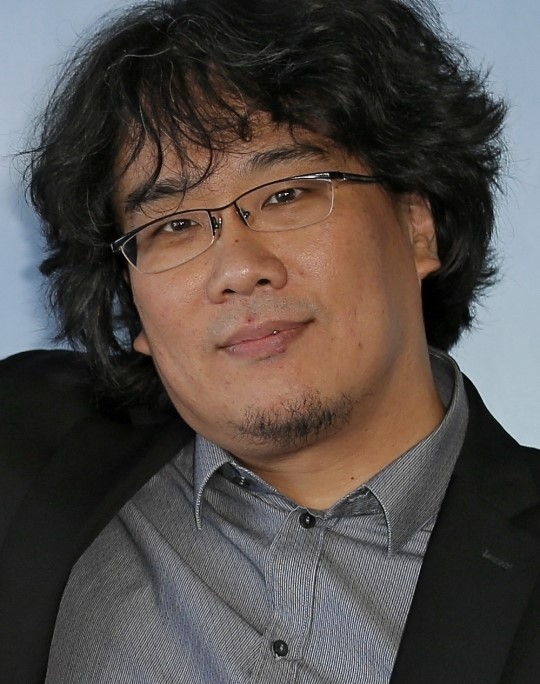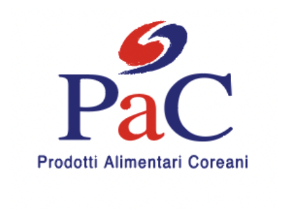Directors Archive / BONG JOON-HO

BONG JOON-HO

Name in korean:
봉준호
Name pronunciation:
Bong Joon-ho
Profession:
Director
Date of Birth:
14 settembre 1969
Gender:
Man
Biography
Bong Joon-ho was born on September 14, 1969 in Daegu, South Korea, the youngest of four children. His father is a professor of graphic design at the local university, while his mother (daughter of Park Tae-won, a famous South Korean writer, with socialist sympathies) is a primary school teacher. Around the age of seven, Boon Joon-ho and his family moved to Seoul, to an apartment near the Han River, which would play an important role in the film The Host. Being an excellent student, Boon Joon-ho was able to gain easy access to the prestigious Yonsei University in 1988. During his university years, he founded a film club with two friends, called "The Yellow Door", and it was this experience that prompted Bong Joon-ho to make his first short film: White Man (1993). The film was presented to the public by the Association of Korean Independent Film and Video and received numerous awards at regional festivals. After graduating in sociology in 1994, he attended the Korean Academy of Film Arts (KAFA) where he made the short film Memories in my Frame (1994), although it was above all his final essay Incoherence (1994) that made him famous with the public and made him appreciated by critics. Bong Joon-ho would have to wait a few more years before he could make his first feature film, Barking Dogs Never Bite (2000), which was ignored not only by the public, but also by critics. In 2003 he made his second film, Memories of Murder, based on a crime story that really happened and was never solved and therefore capable of arousing many expectations among the public. The film did not disappoint, attracting a whopping six million viewers and achieving one of the highest grossing films of that year in Korea. Thanks to Memories of Murder, critics began to take an interest in his cinema and Bong Joon-ho soon became appreciated abroad, where he was invited to numerous festivals. Before shooting his third feature film, The Host (2006), he made two short films: Influenza (2004), produced by the Jeonju International Film Festival, an episode of Digital Short Films by Three Filmmakers, and Sink & Rise (2004), produced for the 20th Anniversary Project of KAFA, an episode of Twentidentity. The spectacular The Host, with thirteen million viewers, is one of the highest grossing films of recent years. In 2008, Bong Joon-ho filmed Shaking Tokyo, one of the three episodes that make up the Japanese film Tokyo!. In 2009 he made Mother, which was presented at the Cannes Film Festival (in the "Un Certain Regard" section) and confirmed Bong Joon-ho as one of the most interesting and courageous directors of contemporary Asian cinema. In 2013 he made the science fiction film Snowpiercer, based on the graphic novel Le Transperceneige: the first international production in English and with a world-famous cast.
2017 is the year of the eco-fiction Okja, the director's first film distributed directly on the Netflix platform.
Parasite (2019), Bong Joon-ho's latest film, cemented its international success, making it the winner of the Palme d'Or and four Academy Awards, including Best Picture.
Critique
Bong Joon-ho's cinema reveals, perhaps more than any other, the peculiar characteristics of that extraordinary revival that Korean cinema has gone through in the first decade of the new century. The combination of box office and quality (which rarely occurs today in both American and European cinema) that has distinguished this season has meant that authors like Bong have emerged with not too much difficulty, imposing themselves in equal measure on the attention of both international critics and audiences. Scrolling through the titles that make up the Korean director's filmography, one discovers that alongside difficult and unconciliatory films such as Barking Dogs Never Bite (2000) or Mother (2009), films with themes that at first glance are not very commercial, there are titles such as Memories of Murder (2003) or The Host (2006), which are among the highest grossing Korean films of recent years. This should not be surprising, given that Bong is a full member of that group of filmmakers who, although following different paths, are part of the same creative horizon. Otherwise it would not be explained, for example, how the intimate dramas of Kim Ki-duk, Hur Jin-ho and Lee Chan-dong are as popular as the spectacular blockbusters of Park Chan-wook and Kwan Kyung-taek. The richness of this cinema lies precisely in its ability to mix different themes and languages in a very free and original form. On a poetic level, love stories end badly, friendships are interrupted, policemen lose confidence in what they do, reconciliations and revenge for abuses are often ephemeral, complex reflections on the history and society of the country open up. On a stylistic level, there is no one genre that imposes itself on the others, so melodrama (whose cinematographic tradition in Korea is very strong) thrives alongside comedy, thriller, action, horror, animation and all are crossed by an internal push that tends to re-discuss the mechanisms that are the basis of the genres themselves: the editing of these films is not the frenetic one of Hong Kong, the rhythm is often dilated and the expressive solutions unpredictable, a symptom that Korean filmmakers look with interest at the tradition of modern European cinema (Neorealism and Nouvelle Vague in particular) and Japanese. Bong's cinema is perfectly inserted in this picture and represents one of its most conspicuous articulations, thanks also to the particular creative restlessness of the director himself. In his films, which are an original synthesis between auteur gaze and commercial needs, many of the poetic and stylistic characteristics of Korean cinema of the last decade can be found. Bong's first works, made at the beginning of the nineties during and after his university years, thanks to his many experiences, first as a founding member of the film club "The Yellow Door", then as a student of the prestigious Korean Academy of Film Arts, do not have the value of pure testimony, but already present (albeit in embryo) the main characteristic traits of what would later be the style and poetics of the future filmmaker. The first short film The White Man (1993), for example, although immature and uneven, presents a very clear situation: a middle-class man finds a severed finger one day by chance (the immediate reference is to Blue Velvet, 1986, by David Lynch), which he will use in his day in the most varied ways. That is, we are faced with a clear emergence of Unheimlichkeit, that is, the transformation of the familiar (the repetitive daily life of a worker) into something uncanny (the exceptionality of finding something mysterious and unexpected and above all of taking it with you); the short film does not go further, it does not suggest further developments of the story, however this poetic trait will be the basis of the subsequent feature films Barking Dogs Never Bite, Memories of Murder and The Host. Another recurring motif in Bong's cinema is the one that emerges from his third short film, with the very explicit title, Incoherence (1994): an attitude of moral condemnation towards characters belonging to the Korean ruling classes, who abuse their power to the detriment of ordinary people. In both White Man and Incoherence, the country's lower classes are portrayed as the only real victims of a hypocritical and corrupt system. In the light of these considerations, Bong's first feature film, Barking Dogs Never Bite, can already be considered as a mature work, in which the motifs of the previous works converge and are structured. Rightly considered one of the most interesting debuts of Korean cinema of the 2000s, the film, whose initial ambitions (entrusting the part of the protagonist to the famous actor Lee Sung-jae) were mortified by the scarcity of the budget, is an intelligent and original black comedy (a rather common genre in contemporary Korean cinema). Starting from and never moving from a circumscribed place (a huge building in the suburbs very similar to the one where Bong lived with his wife before becoming famous), the story intertwines the destinies of a composite group of characters (a researcher who has to bribe a baron in order to get a professorship, his neurotic pregnant wife, an accountant who dreams of becoming a media heroine) whose existence is turned upside down by an apparently common fact, the disappearance of a dog. This small event serves Bong to set up the entire film: the fact takes on a different meaning for each character and pushes each of them to meet or clash with the others. It is in this way that, although starting from a highly realistic setting, with an almost social documentary tone, the Korean director forces his characters to slowly reveal their most intimate nature (fears, obsessions, manias, ambitions, etc.) and thus to bring out again the most hidden and disturbing face of everyday life. There is also a clear attitude towards gender mechanisms in Barking Dogs Never Bite: the film is a black comedy that avoids any kind of stereotype not only because the spectators observe absolutely anonymous characters struggling with extraordinary circumstances (think of the comic effect of people chasing each other in broad daylight through the external corridors of a building), But also because the style loves to play on various registers, from comic to thriller, from action to horror, while even in the finale it touches on tragedy: this is why a persistent note of bitterness and underlying pessimism flows through the film. It is easy to understand that for the Korean director, loneliness and defeat are the same everywhere and for everyone. As is the case with his colleagues of the same generation, Bong therefore loves to bring out his own and original reading of reality (and cinema) through the comparison with the system of rules that constitutes genre architecture. In this sense, the experiments made with both Memories of Murder and The Host, but partly also with Mother, are very significant. Let's consider Memories of Murder, made after the half-fiasco (in terms of audience) that accompanied his first feature film: for the second film, the Korean director fishes out one of the most discussed and gruesome cases of crime news in Korea in the eighties, that of a serial killer of girls who was never arrested by the police. It is clear that Bong is trying with this choice to satisfy a certain horizon of expectation on the part of the public, that is, to retrace on the level of fiction the investigation that had so shocked and interested public opinion. The box in which to package the film seems to be ready and it is that of the thriller: however, from the beginning, it is clear that the Korean director is not interested in the usual narrative development of the genre (murder, investigations, discovery of the culprit), but is simply used to bring out a multiplicity of hidden realities. In fact, there is nothing in Memories of Murder that can recall the mythology of the genre: the sprawling metropolis is replaced by an anonymous, but surreal country village, there is not one, but two detectives and very different in temperament and methods, but above all the ending, built with a wise climax, does not lead where it should lead, that is, to discover the identity of the serial killer. In fact, the mystery ends with nothing done: all efforts have been in vain and the events, like the reality in which they occurred, remain an insoluble mystery. Behind this faint and uncertain trace, another one emerges, strongly, with a more political character, which leads Bong to reflect on the social situation of Korea under the military dictatorship of Park Chung-hee, with the poor people who were periodically forced not only to take refuge in their homes due to the blackouts (imposed to prepare the population for a possible armed conflict), but it often became easy prey to violence and harassment of all kinds, perpetrated by an incompetent police and army, in search, as in this famous case, for a culprit at all costs. The political dimension is one of the most interesting traits of Bong's cinema: rereading the blockbuster The Host from this point of view, it takes on broader and deeper meanings than one might think at first glance. Despite the ten million dollars spent on special effects and the desire to meet the tastes of the public with a spectacular and high-adrenaline film, which brings together different genres such as disaster movies, science fiction and horror, The Host can be considered as an auteur film because it contains all the characteristics of a Bong's work, Starting with a precise indictment formulated in political terms. The monstrous creature that emerges from the Han River and sows terror and destruction on land is nothing more than the result of the pollution of the waters perpetrated in absolute illegality by American troops stationed in Korea. Using a happy metaphor, Bong brings out what is monstrous in the politics of his country, "justifying" in a certain sense the presence of this gruesome creature and making it the symbol of the uncontrollable evils of Korean society. It is no coincidence that the monster is fought against by a family of simple people: the grandfather who tries to save his granddaughter together with his three ramshackle children has a miserable grocery store on the banks of the river. It is therefore still an ordinary stranger who has to rise to the role of hero, certainly not the police, nor the army, which instead, behind the screen of security, throw themselves headlong into an operation to repress dissent and individual freedoms. In The Host, the emergence of the uncanny in everyday life is therefore a more manifest operation, but no less subtle than in Barking Dogs Never Bite or Memories of Murder precisely because the political implications of the film give the combination of realism and fantasy a broader guise than in previous films. The enormous success of the film with audiences should not be surprising and is in a way the perfect confirmation of the habit that wants Korean cinema of the last decade to be a perfect mix between entertainment and critical reflection.
Although, especially after The Host, Bong has established himself as one of the greatest and most successful Korean directors of today, he has never lost his taste for experimentation or even the desire to confront himself with short stories, in which he can continue his poetic reflections and his stylistic provocations. There are two short films (both included in as many episodic films), Influenza (2004, contained in Digital Short Film by Three Filmmakers) and Shaking Tokyo (2008, part of Tokyo!) in which Bong pushes this research on the most hidden and obscure elements of everyday life to the extreme: the first is an extraordinary representation of the contagiousness of evil, while the second is an incitement to overcome the chronic loneliness that contemporary man seems to be suffering from. especially in post-industrial Japan. In Influenza, the dialectical relationship between the reality of violence and its representation is turned upside down in favor of the latter: the progressive brutalization of a man who loses his job and finds himself in increasingly miserable conditions, until he becomes a heinous criminal, backed by an accomplice more cruel than himself, is told through a series of fixed scenes, Made as if the (digital) camera were in place of some of those surveillance cameras that are now widespread in the metropolises of the most developed world. For Bong, violence is not only realized in action, but also in the invasiveness of vision, which allows an impersonal entity (Power in the broadest sense) to control everyone's life. In fact, it is significant how in Influenza the police come to intervene (even in a rather clumsy way) only after the two criminals have committed a numerous series of thefts and harassment: violence, the Korean director suggests, is of interest to the community only as an effect, but no one seems to care about the causes, first of all the loss of jobs and the progressive impoverishment of the middle class. In Shaking Tokyo, the metaphor of the lonely man who meets love by pure chance (at that moment there is an earthquake that forces him to rediscover his lost humanity) actually serves Bong to paint a penetrating and very hard fresco on the inability to live human relationships. The director is very skilful in starting as usual from a simple everyday event and playing on the level of dissimulation: if the protagonist at the beginning lives in a self-isolation that makes him appear in the eyes of the viewer as an extreme character, it will soon be discovered that in reality his condition is not at all exceptional, but instead is common to almost all of his fellow citizens. The reversal of the initial situation is almost total and so the earthquake tremors, which serve as a link between one sequence and another, seem to represent again that primordial and obscure force that emerges from the mystery of everyday reality. In many respects, mirroring Memories of Murder is Mother, another film that has the structure of a detective story, but which actually hides very different purposes. Also in this film, Bong describes the painful story of two outcasts: a mother who lives on an unprofitable job and her retarded son, whom society condemns in advance as guilty of a murder with very dark dynamics. If the dramatic core of the genre in Mother is fully respected, as the film progresses it becomes increasingly clear that the mystery turns into drama from the moment the mother becomes convinced that her son is nothing more than a scapegoat and tries to prove his innocence. The tone of the film changes: faced with the carelessness of the police, who consider the case closed, the woman proceeds with her personal investigations, which will however lead her to discover a very painful reality: it was really her son who committed the murder and she did it with extraordinary lucidity. The tragic element of the film lies not so much in the fact that her son will be exonerated (the police will arrest another disabled boy), but in the discovery by the mother that it was she herself, with her extremely protective attitude, who pushed her son to commit the crime. It would be reductive to consider Bong's style only as a (albeit important) reinterpretation of genre mechanisms, because the Korean director stubbornly pursues his own idea of cinematic language, aimed at highlighting in every shot and in the editing an idea of conflict and visual dialectic between the various elements of the image, consistent with the need to make everyday reality appear in their most mysterious and hidden aspect. Over the years, Bong has perfected his mastery of the camera: avoiding both the postmodern acrobatics à la Park Chan-wook and the aestheticizing pictorialism à la Kim Ki-duk, he has developed a "median" style with respect to these two opposing trends in contemporary Korean cinema. This language translates into a series of opposites, which his images seem to pervade by: open/closed (as in Barking Dogs Never Bite and in most of the short films, from White Man to Incoherence, from Influenza to Shaking Tokyo), low/high (as in The Host), light/dark (as in the two thrillers, Memories of Murder and Mother), to underline how the representation of reality is irreducible to a single universe of meaning, but must somehow be continuously rediscussed and renegotiated. In this sense, the many rhetorical procedures that distinguish Bong's style, from the extensive use of depth of field and the shot-sequence to the insistence on close-up, from the choice of continuously variable points of view to an idea of editing inside the frame, are part of an idea of language that is both ancient and modern, a symptom that Bong has been able to exploit his cinephile culture without transforming it into an inexhaustible source of quotations, but managing it as a starting point to find one's own expressive and professional path. If Korean cinema today can boast an expressive richness perhaps unparalleled in the rest of world cinema, it owes it precisely to this attitude of continuous challenge that its major filmmakers maintain towards the industry: accepting the rules of business does not necessarily mean homogenizing language in an indistinct panorama, as recognizable as it is predictable, but seeking a point of convergence between conservation and research, between tradition and innovation, between rules and transgressions. Bong Joon-ho's cinema is there to demonstrate how this path is not only desirable, but even necessary.
by Marco Luceri




